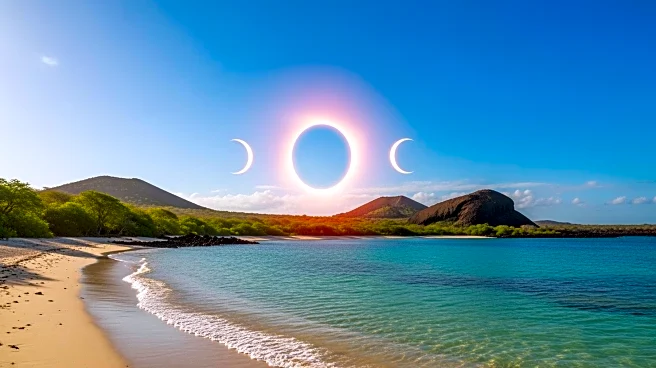What's Happening?
Sky & Telescope is organizing an 11-day sightseeing tour and cruise to the Galápagos Islands, scheduled from January 22 to February 1, 2028. The highlight of the tour is an annular solar eclipse on January 26, 2028, where participants will witness the 'ring
of fire' phenomenon. The tour includes visits to nine islands in the archipelago, offering opportunities to explore unique wildlife and volcanic landscapes. The cruise is partnered with Royal Adventures, known for high-quality travel experiences in South America. The itinerary includes guided tours, snorkeling, and cultural experiences, with accommodations on the MV Galapagos Legend.
Why It's Important?
The annular solar eclipse presents a rare astronomical event that attracts global interest, offering a unique experience for travelers and astronomy enthusiasts. The tour promotes eco-tourism and highlights the Galápagos Islands' biodiversity, contributing to conservation awareness and local economic development. It provides educational opportunities about solar eclipses and the ecological significance of the islands, fostering a deeper appreciation for natural phenomena and environmental preservation.
What's Next?
As the tour date approaches, Sky & Telescope will continue to provide updates and detailed itineraries for participants. Preparations will include logistical arrangements for optimal eclipse viewing and ensuring safety protocols. The event may attract media coverage and interest from scientific communities, potentially leading to collaborative research opportunities. Participants are encouraged to book early due to limited availability and high demand for such unique experiences.
Beyond the Headlines
The tour underscores the importance of sustainable tourism practices in preserving the Galápagos Islands' delicate ecosystems. It highlights the role of travel in promoting cultural exchange and environmental education. The event may inspire future initiatives to combine tourism with scientific exploration, enhancing public understanding of astronomy and conservation.















